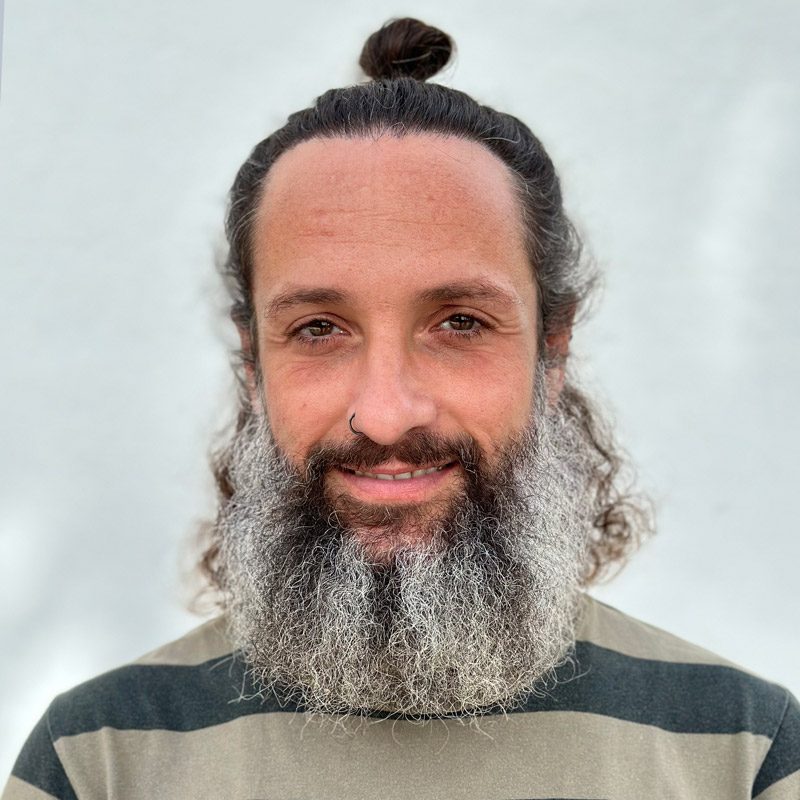The Datoga tribe, also known as the Mang'ati in Swahili, is an agro-pastoral semi-nomadic and Nilotic-speaking ethnic group living in north-central Tanzania. They consider themselves the oldest tribe in Tanzania. The Datoga people are a proud people with a reputation as the first and foremost fierce warriors, known for their stealthy ability to eliminate their adversaries. They refused to subject themselves to colonization and vehemently resent the government, making them enemies of the state.
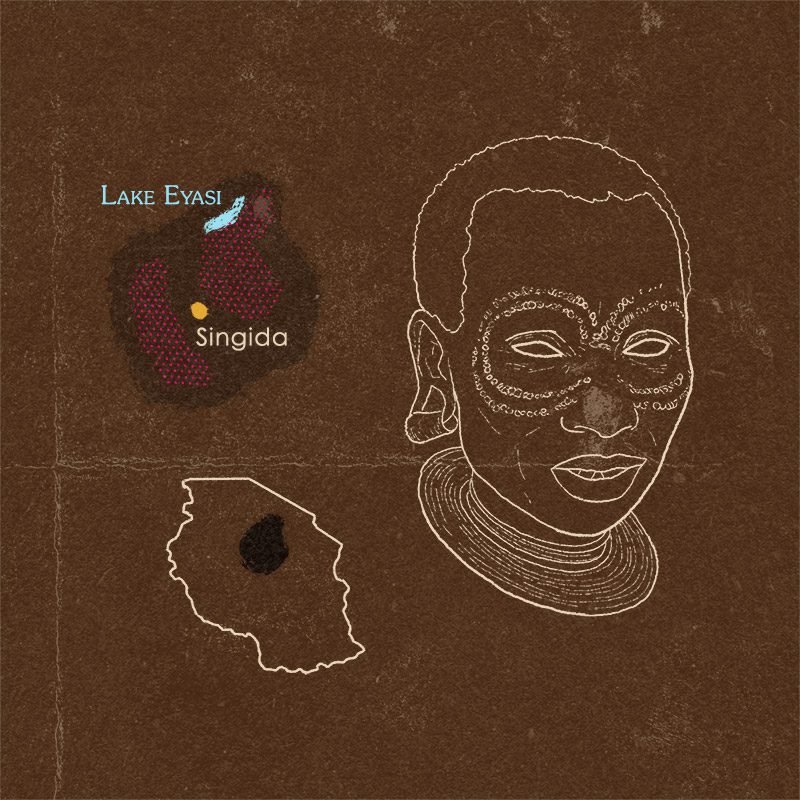
Location of the Datoga tribe in the territory of Tanzania.
Population and ecosystem of the Datoga tribe
Around 88,000 people compose the Datoga tribe. They live in the Singida and Manyara Region of north-central Tanzania. They occupy the areas around the Rift Valley in the regions of Arusha, Sangida, Dodoma, Shinyanga, Tabora and Mara.
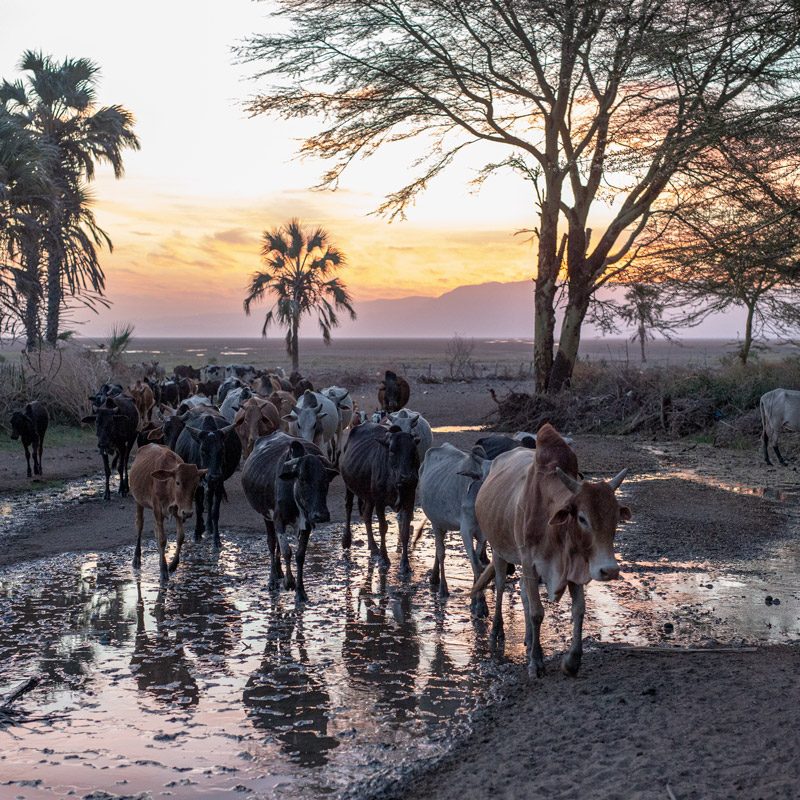
Herd of cows grazing near Lake Eyasi during a trip to Tanzania.
Datoga people's economy
Datoga tribe self-identifies as semi-nomadic pastorals and places incredible cultural meaning on cattle. Among pastoral Datoga people, herds consist of goats, sheep, and donkeys, but cattle are by far the most important domestic animal. The meat, fat, blood, milk, hide, horns, tendons and dung of every animal have either practical or ritual purposes. However, they rely on a range of economic subsistence strategies, including farming, blacksmith, market, and wage-based labor.
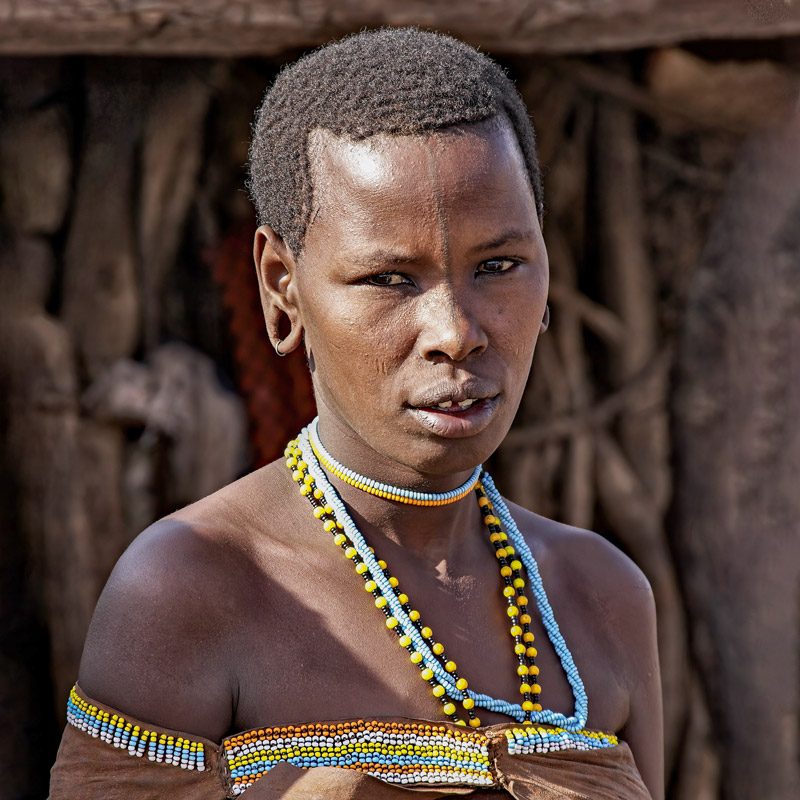
Datoga woman with traditional tattoo during trip to Tanzania.
Do you want to meet the Datoga tribe of Tanzania?
Join us on our next trip to Tanzania from 5 to 15 August 2024 to meet the Datoga tribe. Click here for all the details of the trip.
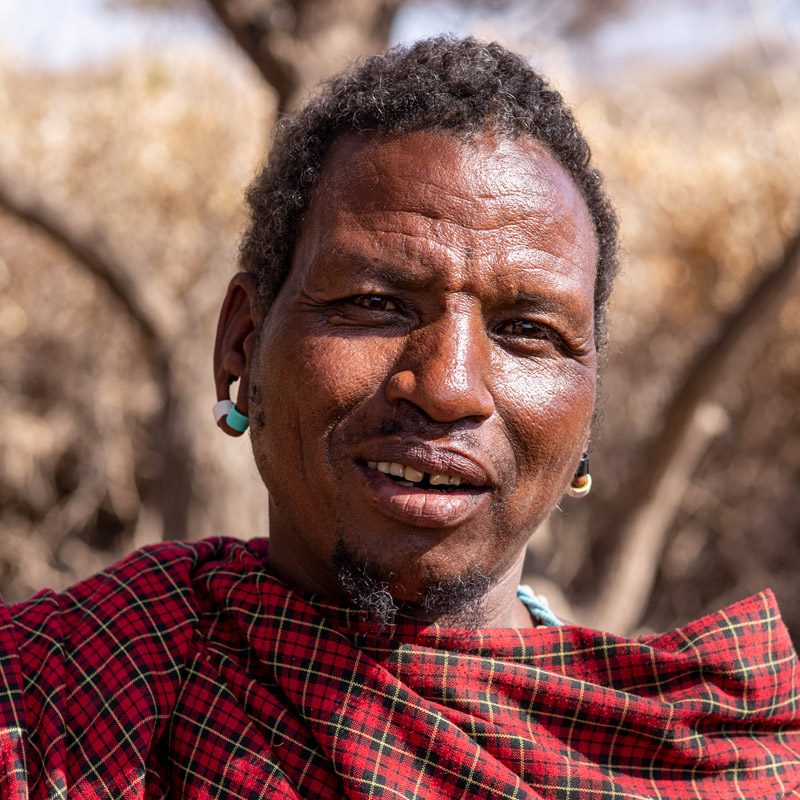
Datoga man dressed in a Masai blanket during a trip to Tanzania.
Social organization of Datoga people
Traditionally patrilineal and polygamous, wealthy Datoga men would often marry multiple wives from outside their clan and maintain multiple households to access the widest diversity of agricultural and grazing lands. Datoga families often had an elaborate kin and community network that they could rely on in times of scarcity. Wealthy households commonly supported poorer households in the community through herd-sharing and other cooperative forms of resource distribution. Nowadays, men only marrying one wife, and women are often left as defacto household heads when men migrate for labor.
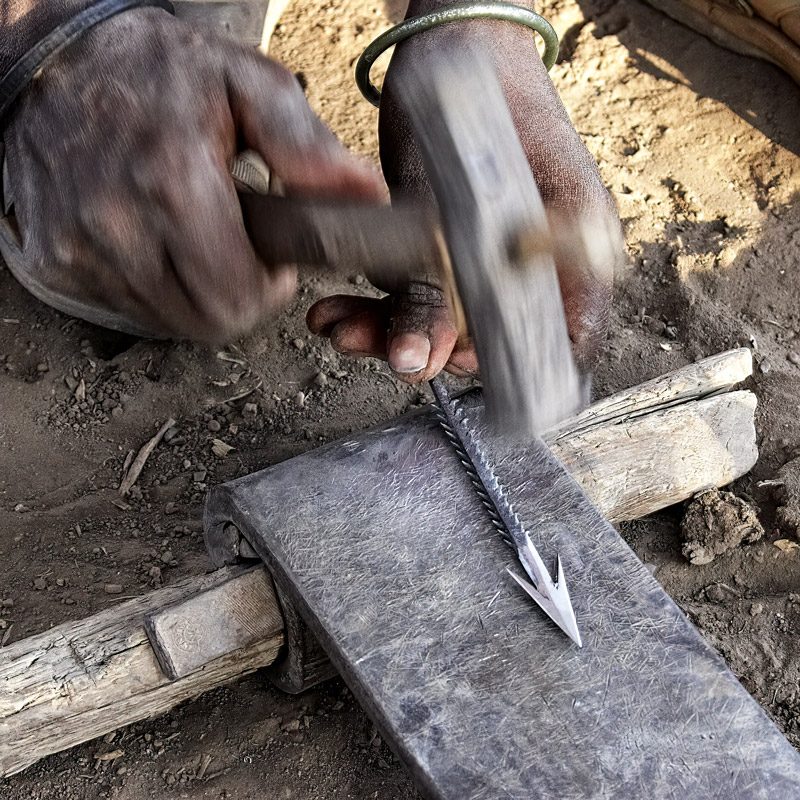
Blacksmith from the Datoga tribe making spearheads during a trip to Tanzania.
Art and architecture of the Datoga tribe
The Datoga people are fine blacksmiths artists. This activity is an additional source of livelihood. They use scrap metals to make copper and iron items such as arrow heads, which they barter trade with the Hadzabe tribe. Also, they make beautiful knives, hand hoes, bangles, earrings, necklaces, etc.
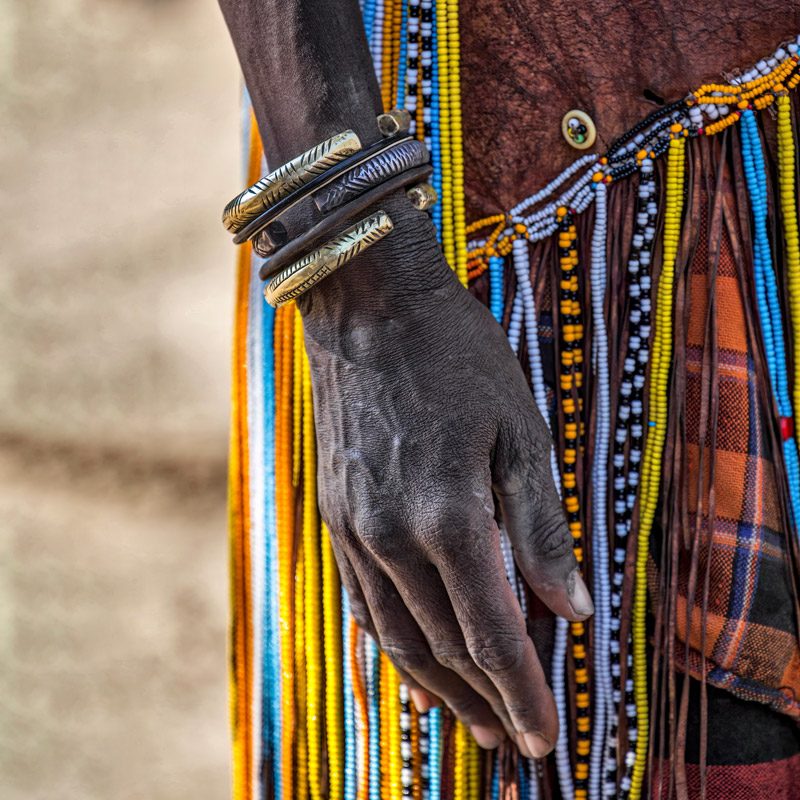
Woman from the Datoga people wearing bracelets during trip to Tanzania.
The traditional vernacular architecture of the Datoga tribe consists of circular huts with walls with a structure made of grasses and branches woven, covered in mud and a roof of bough. Usually, the villages have a rectangular base construction with a flat roof made with the same materials, although their walls do not usually have the exterior mud coating. The function of this space is to serve as a meeting point for Datoga men. Also, you can find buildings where they keep their flocks. The villages are surrounded by a fence made of branches with thorns.
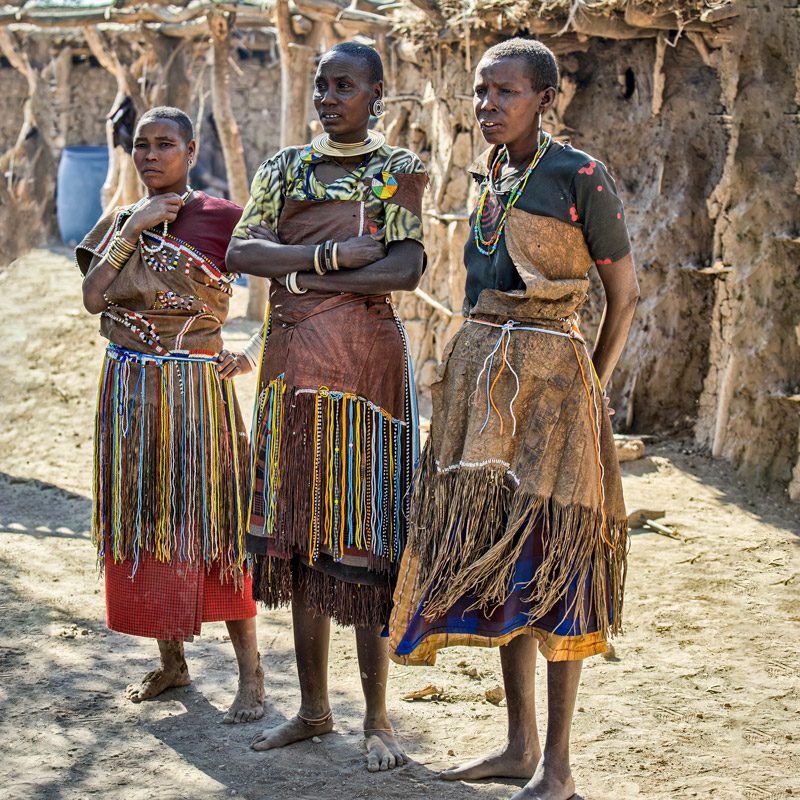
Women of the Datoga tribe in traditional dresses during a trip to Tanzania.
Aesthetics and belief system of the Datoga people
The Datoga tribe blends in with their environment, because of their dress, which is the color of the reddish brown soil. Women traditionally wear a leather cape, or a piece of woven cloth, often of a red color. Women are often adorned with metal neck, arm, ear and ankle ornaments, and beads may be sewn to clothes or worn as decorations. The prominent Datoga people's decoration is the tattooing of circular patterns around the eyes. Datoga married women are distinguished by a special skirt made of thin strips of leather.
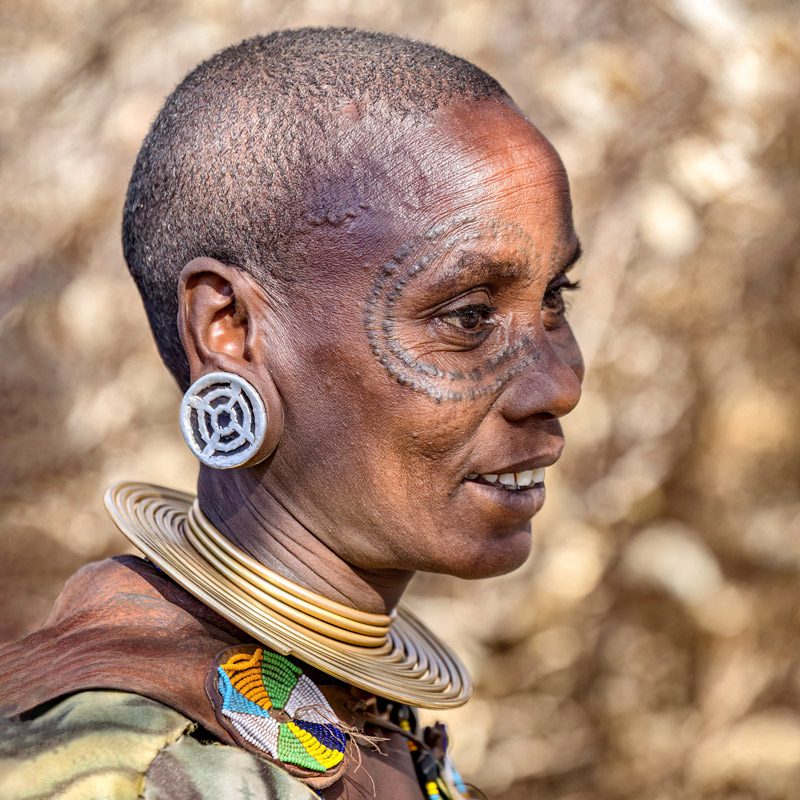
Woman from the Datoga tribe wearing dilations and traditional tattoo during trip to Tanzania.
Currently, men wear a 'Maasai blanket', often of a red color, around their shoulders over short trousers and a shirt, and carry a stick with a widened end. The Datoga supreme deity is Aseeta, “an androgynous, powerful, and inherently good deity, invested with immense creative potential”, who can be communicated with through the mediation of ancestral spirits. These ancestral spirits talk to diviners, are appealed to in prayer, and can bless or punish. The majority of the Datoga tribe maintains animistic beliefs and practices, and respects ancestors. They are said to practice divination, rainmaking, witchcraft and sorcery. About 1% of Datoga people are thought to be Christians.
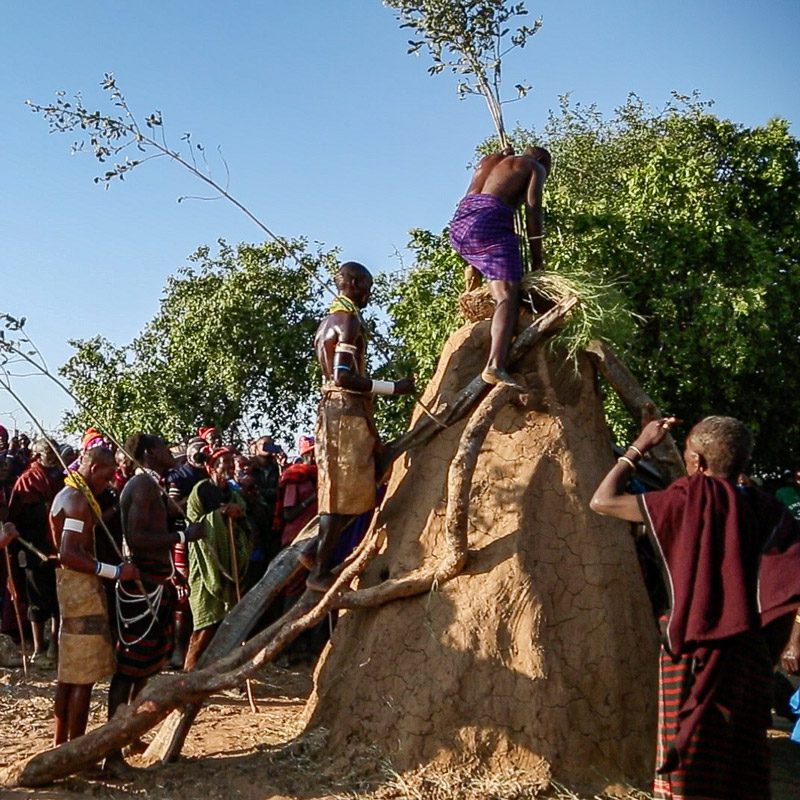
Bungeda ceremony of the Datoga tribe during a trip to Tanzania.
Bungeda ceremony of the Datoga tribe
Traditionally, the Datoga tribe has considerable respect for the dying, as the dead are believed to become guardian spirits. However, they fear corpses. Those in contact with the dead, or who have had a miscarriage, have restricted contact with others for prolonged periods. Ordinary people may be buried in the living compound. But every year, a few revered elders are buried in grand communal funerals called Bungeda. The Bungeda ceremony of the Datoga tribe includes various funeral rites and events dedicated to a socially relevant deceased member. A cone-shaped mound made of mud and tree trunks is built in order to bury the deceased wrapped in cattle skin. The Datoga tribe believes that the spirit of the deceased is still alive and acts as a transmitter of the people's prayers to God.
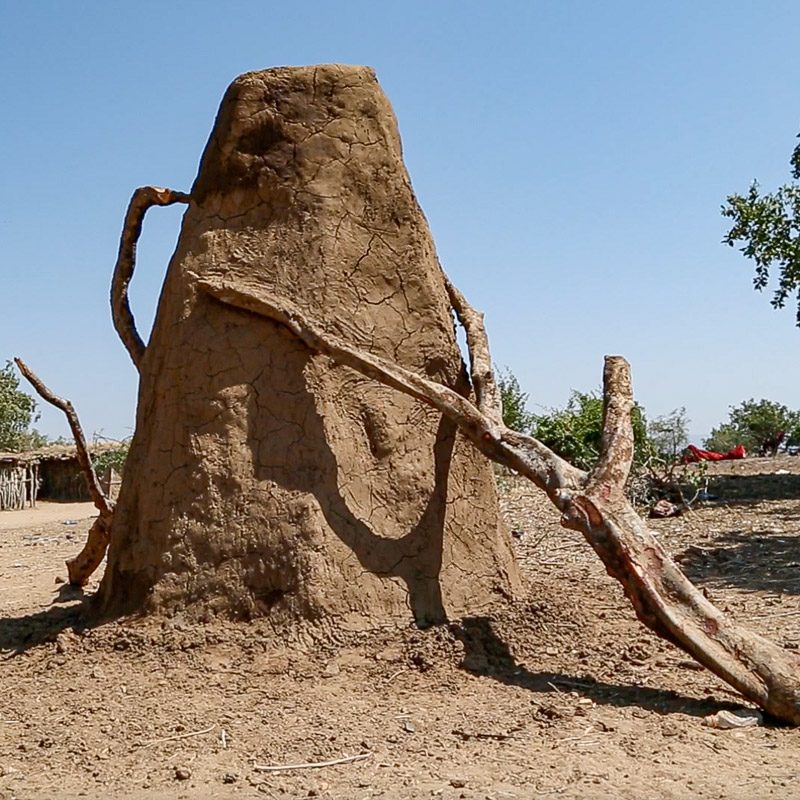
Bungeda ceremony of the Datoga people during a trip to Tanzania.
Do you want to live the Bungeda ceremony of the Datoga tribe?
Join us on our trip to Tanzania from 16 to 25 July 2024, during in which we will attend various Bungeda funeral ceremonies of the Datoga tribe. Click here to discover more details about the trip to Tanzania in July 2024.
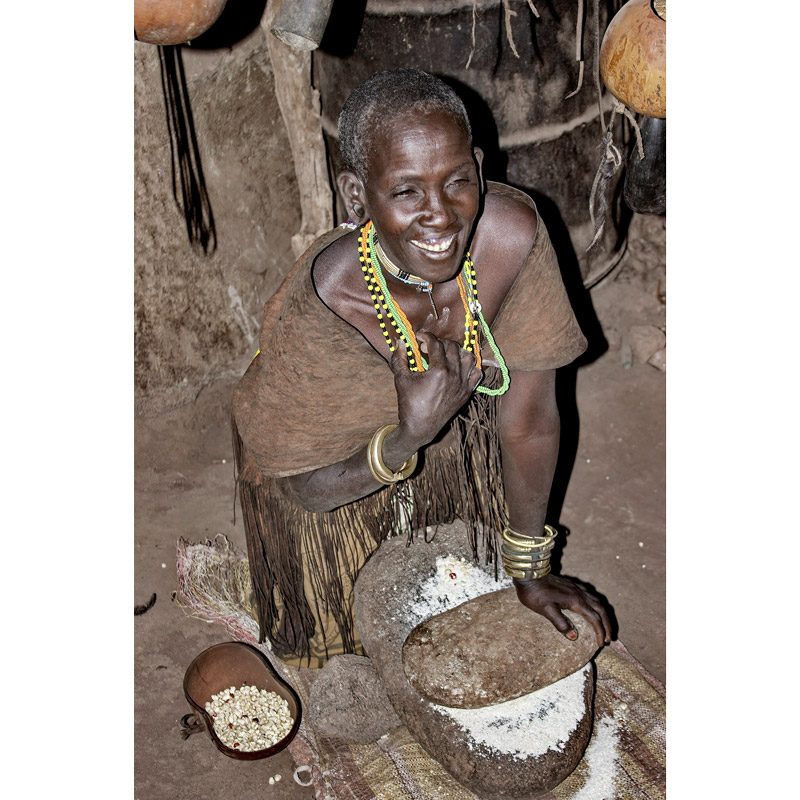
Datoga tribe woman grinding grain on stone during trip to Tanzania.
Challenges of the Datoga Tribe
The current situation has placed the Datoga tribe in a pivotal position to continue their traditional existence. The cutting of trees for making coal, Maasai stealing their cows, the privatization of land, increased pressure from agriculture (both domestic and commercial), and a history of Machiavellian state policy towards the Datoga people have pushed many of them into more marginal areas. Now, semi-nomadic Datoga often occupy spaces with limited access to water and arable land, as well as restricted access to basic social services. This situation is exacerbated by the breakdown of traditional social support networks.
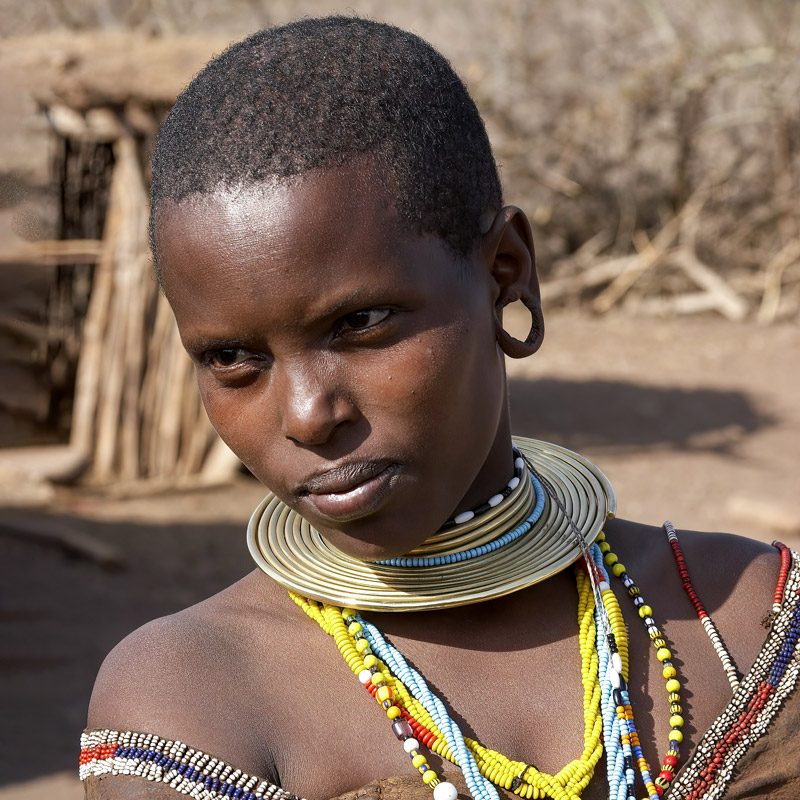
You can learn more about the Datoga people of Tanzania at www.101lasttribes.com
© Photos by Jordi Zaragozà Anglès and Xavi de las Heras taken during a trip to Tanzania.
